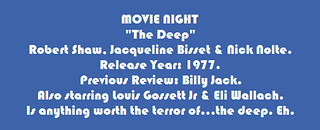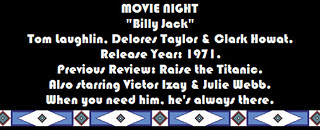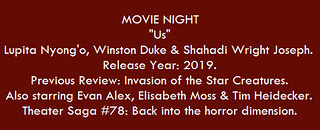
Review #1203: Us.
Cast:
Lupita Nyong'o (Adelaide Wilson / Red), Winston Duke (Gabriel "Gabe" Wilson / Abraham), Shahadi Wright Joseph (Zora Wilson / Umbrae), Evan Alex (Jason Wilson / Pluto), Elisabeth Moss (Kitty Tyler / Dahlia), Tim Heidecker (Josh Tyler / Tex), Yahya Abdul-Mateen II (Russel Thomas / Weyland), Anna Diop (Rayne Thomas / Eartha), and Cali and Noelle Sheldon (Becca and Lindsey Tyler / Io and Nix) Directed by Jordan Peele (#909 - Get Out)
Review:
When Jordan Peele made his directorial debut with Get Out two years ago, I certainly did not know what I was expecting exactly, but I figured that it would prove just fine in delivering some kind of horror. It certainly proved to be a success - how many other horror films win (much less get nominated for) an Academy Award for Best Original Screenplay? Undeniably, his next venture into horror can prove enticing, with him once again serving as director, writer, and producer, with an increased budget and some inspiration from The Twilight Zone (more specifically, "Mirror Image") this time around. The idea of being stalked by someone that looks like you certainly can prove creepy, particularly if you and your whole family meet them up close. In the long run, the film presents an assortment of interesting concepts encompassed in a horror film that works itself out just fine. Perhaps it doesn't hold up as much as it really should with its plot, but it is at least handy to deliver some scares and a few laughs without being distracted too much with tonal disconnect. It will please people wanting something that don't want too much blood but are fine with some creepy imagery and atmosphere, that much is certain. The film takes its time to get the ball rolling in suspense, but you never feel too particularly bored with the main group during its 116 minute run-time. It is the chemistry that the main four have with each other - whether dealing with family stuff or suspenseful moments that make the film work as well as it does, with no weak point in the cast as a whole. Nyong'o proves up to the task of dual roles when needed, showing resolve in the face of danger while dealing with past demons and conversely showing anguish and terror - albeit with aid through a pained croak that takes some time to get used to. Duke shines finely enough, with Joseph and Alex proving effective for the course in playing off the main menace with resilience (and vice versa in a sense for the doubles). Moss and Heidecker provide a bit of levity for their moments on screen. Describing the film and its plot in much detail would spoil the fun (at least for me, anyway) in actually experiencing its frights and tricks without real warnings - although I can at least say it isn't the kind of film that trips over its own hype and story (for the most part). The climax is fairly clever in its own machinations (with some help from Michael Abels and his music), but I feel that its method of exposition dump (or whatever you describe it as) does tend to be a bit silly. It isn't so much that I don't care for things in a film to be explained or not (as is the case sometimes with horror films or their sequels, anyway) - it just seems a bit forced in view of its placement within the film and it messes with its illusions in some way; it certainly will provoke a bit of thinking with what it says about what it means to be oneself, which is fine by me. Regardless of how one may feel with how the film deals with its motivations, the movie itself is an interesting and well-made horror film, having a solid cast and capable guiding hands from Peele. He certainly knows how to make his film stand out on their own as interesting pieces to get thrills from through the tropes of horror without so far succumbing to being bogged down in overextending himself too much. I imagine whatever his next venture into horror (or whatever it might be) will certainly provide curiosity to follow into its web of interest.
Overall, I give it 8 out of 10 stars.

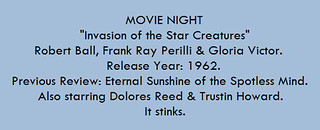
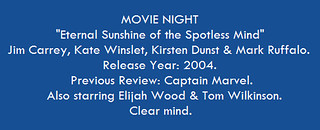
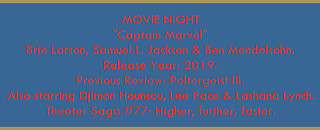
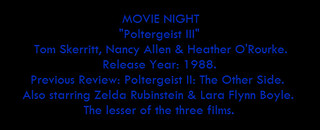
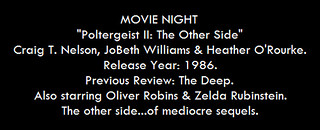 Review #1198: Poltergeist II: The Other Side.
Review #1198: Poltergeist II: The Other Side.